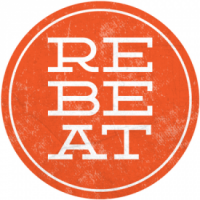ALBUM: Various, ‘The Only Folk Collection You’ll Ever Need’
![]() If I were teaching a course on the 1960s folk music revival, The Only Folk Collection You’ll Ever Need would be my musical textbook. Entertaining and educational, this is a diverse retrospective of urban folk’s most influential and iconic songs and artists. Refreshingly, this is not a standard “greatest hits” compilation, but a chronological history of recorded folk music that traces the movement’s lineage back through generations.
If I were teaching a course on the 1960s folk music revival, The Only Folk Collection You’ll Ever Need would be my musical textbook. Entertaining and educational, this is a diverse retrospective of urban folk’s most influential and iconic songs and artists. Refreshingly, this is not a standard “greatest hits” compilation, but a chronological history of recorded folk music that traces the movement’s lineage back through generations.
It begins at the beginning… or at least the beginning of recorded folk music. Light-years from the coffeehouses of Greenwich Village, primitive recordings of the Carter Family’s 1935 “Can the Circle Be Unbroken (By and By),” and Lead Belly’s “Rock Island Line” (1940) capture the beginnings of modern folk. These give a rare look into the character of folk music before the recording studio revolutionized distribution — the music of rural towns, plantations, and prisons. The rawness of these early recordings may be disconcerting to the modern listener, but stay with it; after a few listens, the artists’ passion and authenticity transcend any sound quality issues. In fact, the more I listened to the album, the more these early tracks became my favorites.
As the collection moves into the ‘50s, pivotal songs from the movement’s pioneers — Woody Guthrie, the Weavers, and the Kingston Trio — show how an increased focus on societal injustice made folk music synonymous with the fight against political and racial oppression. And once we reach the ‘60s and early ‘70s (the last two-thirds of the album), it’s packed with iconic songs of the era — “Blowin’ in the Wind,” “The Last Thing on My Mind,” “I Ain’t Marching Anymore,” and “There But For Fortune,” to name a few. But again, this is far from a “greatest hits” collection — for every famous song, obscure tracks from artists like Odetta and Eric Andersen capture folk music’s diverse range of artists, subjects, and arrangements.

This diversity alone is enough to recommend the album to newer listeners who may not be familiar with the depth and breadth of the ‘60s folk music revival. But the real payoff comes from the inclusion of those earliest songs. Yes, it took some work — I routinely looked up information about artists and songs I’d never heard before during the first few listens — but the extra effort was worth it. There never would have been Bob Dylan without the Carter Family, or Pete Seeger without the Weavers; knowing — and really hearing — that lineage and progression changes the listening experience, even for songs we’ve heard a million times.
One caveat: don’t forget that this is a folk collection and naturally focuses on heavy and emotional subject matters like war, racial injustice, and loss, so you have to be in the mood for it. But when you are, the album is a treat. Whether you’re with Lead Belly at the penitentiary or with Peter, Paul and Mary at the March on Washington, this collection transports listeners to a unique time when folk music emerged as a powerful way to collectively share struggles and effect social change.
This may not be the only folk collection you’ll ever need, but it’s certainly one you’ll want. Though the folk music catalog is huge and didn’t end with the ‘60s urban revival, this is an excellent introduction to essential songs that will likely send listeners on a search for more.
